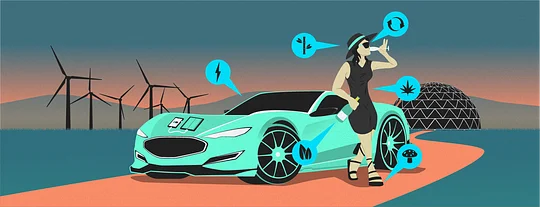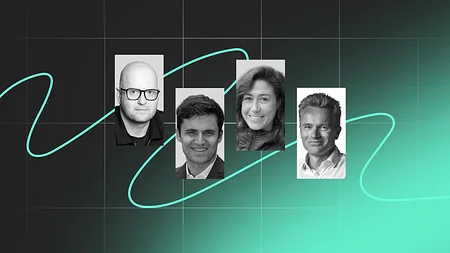Ethical is the new luxury; why trust is slipping through the banks' fingers

When I see headlines about “hipster” banks and “trendy” cards, it strikes me that the narrative is missing a huge shift about the consumer. Ethical is the new luxury. Private is the new showy. Transparent is the new trusted.
Your customer doesn’t want your bank. Sorry for starting on a downer here but let’s get real, the majority of customers tolerate their bank.
Banks have talked a big game for decades about “trust”, this idea that customers “trust” banks not to lose their money, “trust” banks to make payments work. This rational version of trust, akin to when I flick a switch in my home, I trust the light comes on, is the sacred thing upon which banking being a defensible incumbent market is based.
Well, trust and, of course, customer inertia to move their salary account when the options don’t go much beyond whether you want the blue bank, the green bank, or the other blue bank.
The New Trust: Transparency
Of course customers want a product to work. It’s kind of table stakes. It’s an indictment of an industry when “trust” comes from the fact the product sort of works but is a bit clunky.
More importantly there’s been a real shift in what customers want from your brand, which comes through every interaction. From terms and conditions, to outage comms and even how customer support works. They want banks to shift focus, from how the bank makes money, to how the bank serves the customer and in turn profit follows.
Credibility in most banking organisations is the ability to understand how a proposition or product can make money. But credibility with your customer is them believing you’re not out to catch them.
- Customers don’t want complex T+Cs that your lawyers feel protects the bank. They want T+Cs in the plainest possible language. This builds “trust”.
- Customers don’t want vague “there was an incident which has now been resolved” corporate speak. They want a sincere apology, a readable diagnosis of what went wrong, and for the incident not to take down all the digital channels at once. That builds “trust”.
- Customers don’t want your IVR or call center script. They want a smart human, who actually wants to help. That builds “trust”.
Everything you do speaks your values
The amount of organisations that spend ludicrous sums of money on “purpose and values” training and internal messaging but don’t live them hurts me. Culture pervades everything you do, and customers can tell.
There’s no clearer example of this than the difference between Apple and Facebook post-Cambridge Analytica. Both big tech companies, both in a position to wield massive influence over customer data, both arguably as exposed to a customer backlash against big tech (aka 'the techlash').
The hardest thing to innovate is culture, especially in massive organisations.
Yet Apple, the masters of marketing and with a business model that doesn’t rely on your data, have been able to evolve their messaging towards privacy. They have done so with credibility and enhanced their standing with the crucial tastemaking, ethical consumer. That ethical consumer had a Mac long before the boardroom did. If you lose the tastemakers, it’s only a matter of time until you’re the next Blackberry.
Contrast this with Facebook, who at the recent F8 conference announced their redesign and a raft of features designed to improve customer privacy. Yet it rang hollow. Barely a single outlet covered the news with positivity because Facebook cannot act with credibility. There are clear steps they could take for privacy but they seem too hesitant in the eyes of the consumer.
Ethical is the new luxury
When you step back, you start seeing this trend everywhere. The premium car used to be the petrol-hungry BMW M3, but now the premium car is the Tesla Model X. The aspirational diet used to be Atkins and meat-based, now the aspirational diet is as plant-based as possible. Aspirational furniture didn’t have to be sustainable, but increasingly sustainable furniture is now bought at a premium.
Once you start seeing this trend, you can’t unsee it. Major fashion is probably the main example. The consumer is moving from fast fashion (e.g. Primark) to sustainable premium brands, with many centuries-old brands now promoting the ethical and sustainable nature of what they’ve produced.
Now, you may say these are temporary trends and sure, perhaps more people choosing to vegan could be filed under a lifestyle choice or driven by a dietary need, but I genuinely don’t believe that the desire for more sustainable approaches to how (and where) we travel, what we eat, where we choose to shop, who we trust with our investments, can be easily dismissed.
Who we choose to be, how we choose to make decisions, customers feel that.
Against this backdrop, have banks really understood this shift? Has it shifted who they are and how they work to the core?
The transparent future is scary
The methods by which some incumbent banks make decisions, build products and communicate with their customers are broken. I was told an anecdote whilst at Money 2020 recently by the CTO of a top 30 European bank that went something like this (paraphrasing):
“We had an engineer present our existing internal architecture at a developer event recently and they pointed out that it's 'quite dated’. Which of course, it is. Everyone knows it."
Word got back to the Head of Comms at this bank, that an engineer had suggested their tech was dated. The head of comms was furious and asked the CTO:
Head of Comms: “What do you intend to do about it?”
CTO: “Well, nothing”
Head of Comms: “Why not!?”
CTO: “Well, he’s right”
Head of Comms: “But that’s a negative he’s put out there!”
CTO: “It’s the truth, and he did the right thing.”
Head of Comms: “Well, umm, well, you accept responsibility for it?”
CTO: “For the truth? Sure, we’re working hard to change it.”
Head of Comms: “Well OK then, it’s on you.”
The reality of course is while that infrastructure is indeed dated, it also works and is a critical part of the economy. The point, though, is that the engineer was aspiring to a better future, and was being open and honest about where they are, and where they want to go.
There’s a culture problem in large organisations where it’s become normal to deny the actual truth and put forward the 'truth' you want the world to believe instead. This is how we end up with corporate-speak. No admission of blame, no fault, and lots of committees.
Why is a new culture so hard?
So the interesting question is: why is it more important to cover our own ass than each others? Is it because banks are regulated? Is it because they’re big and often in the glare of the media? Probably. But it’s also a choice. How we communicate with each other internally reflects externally. Who we choose to be, how we choose to make decisions, customers feel that.
The hardest thing to innovate is culture, especially in massive organisations. But if you get the culture right, where an engineer can be honest about the truth and where that engineer's boss defends them for telling the truth, those are the companies that I back to do well against challenger banks.
If your boss thinks the thing the challenger banks got right was brightly-coloured cards and nice-looking apps, there’s still a lot of work to do...



